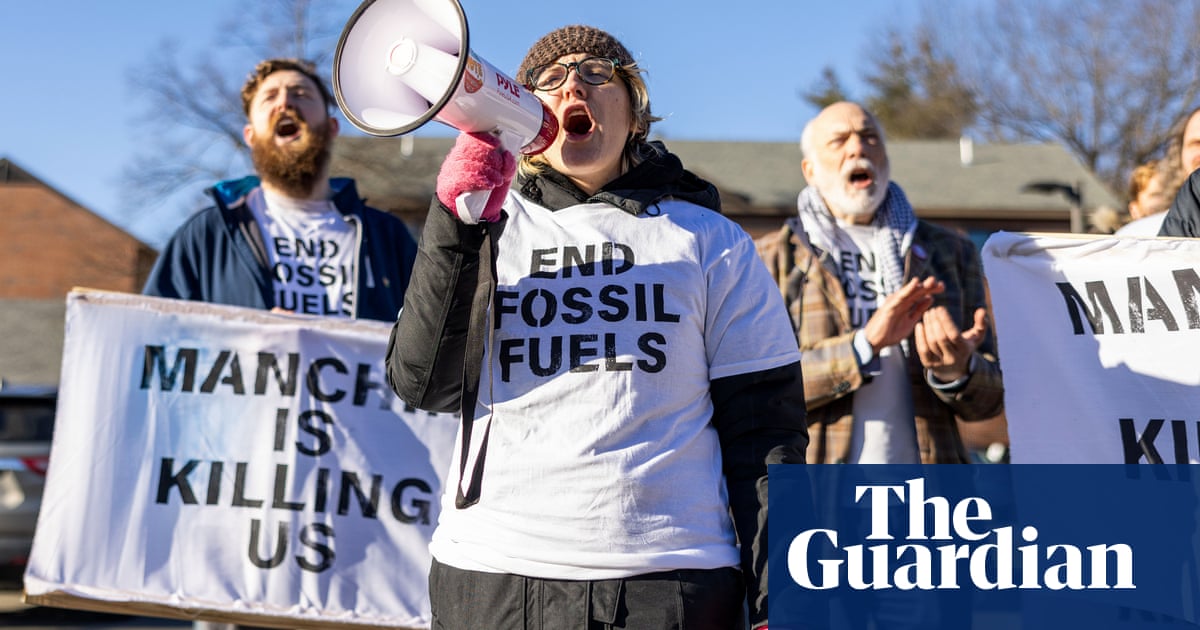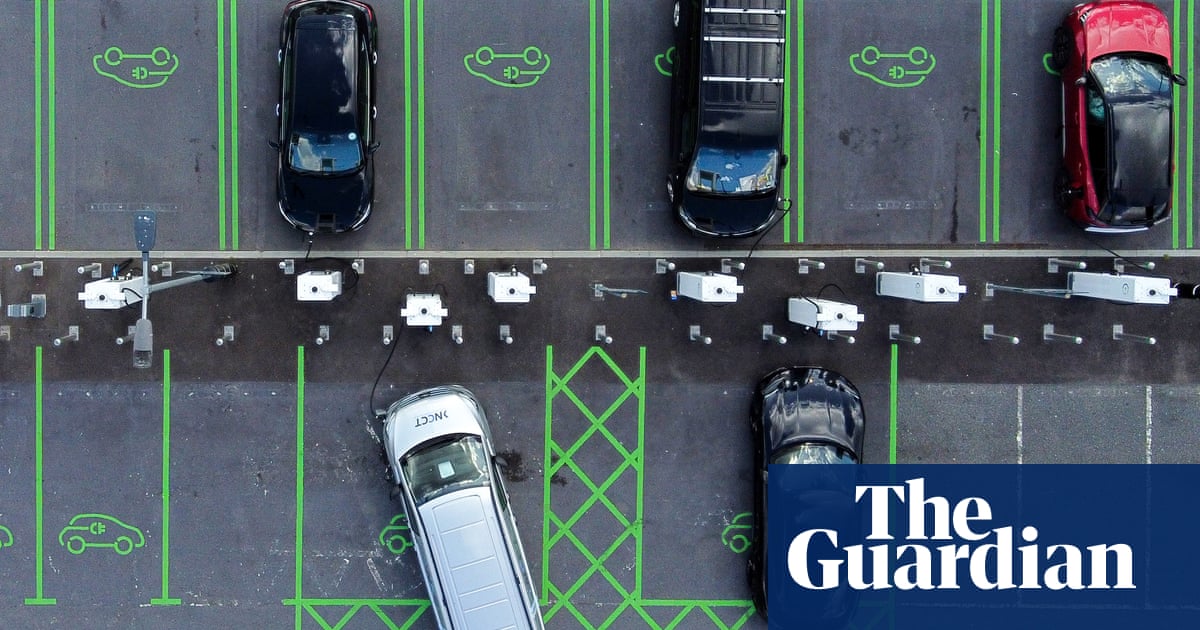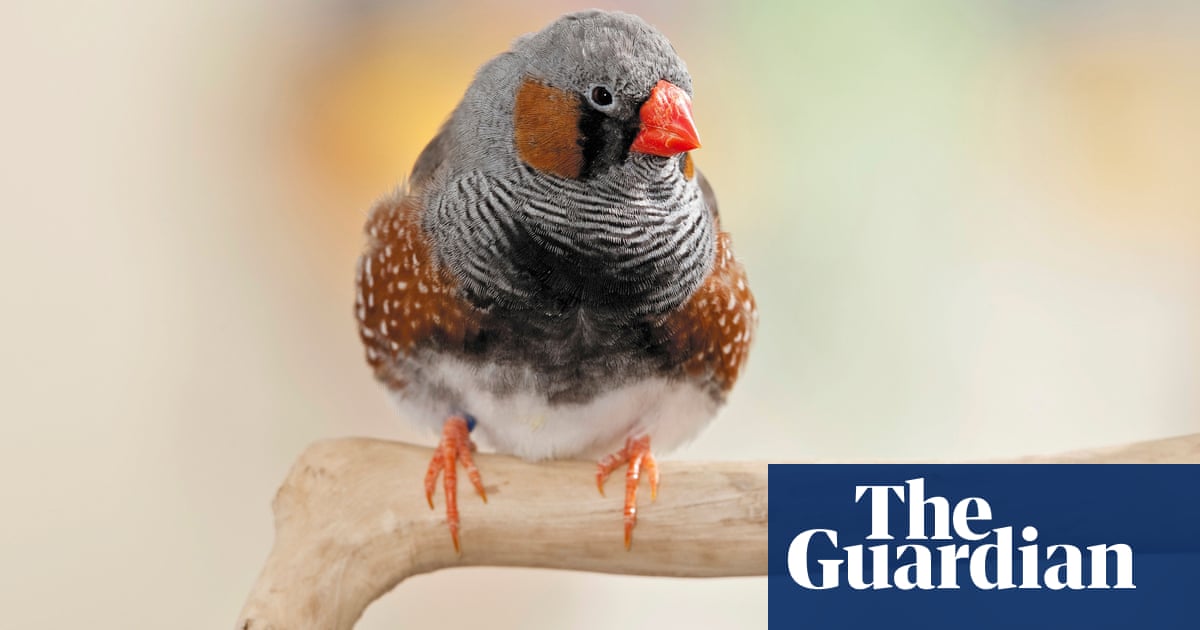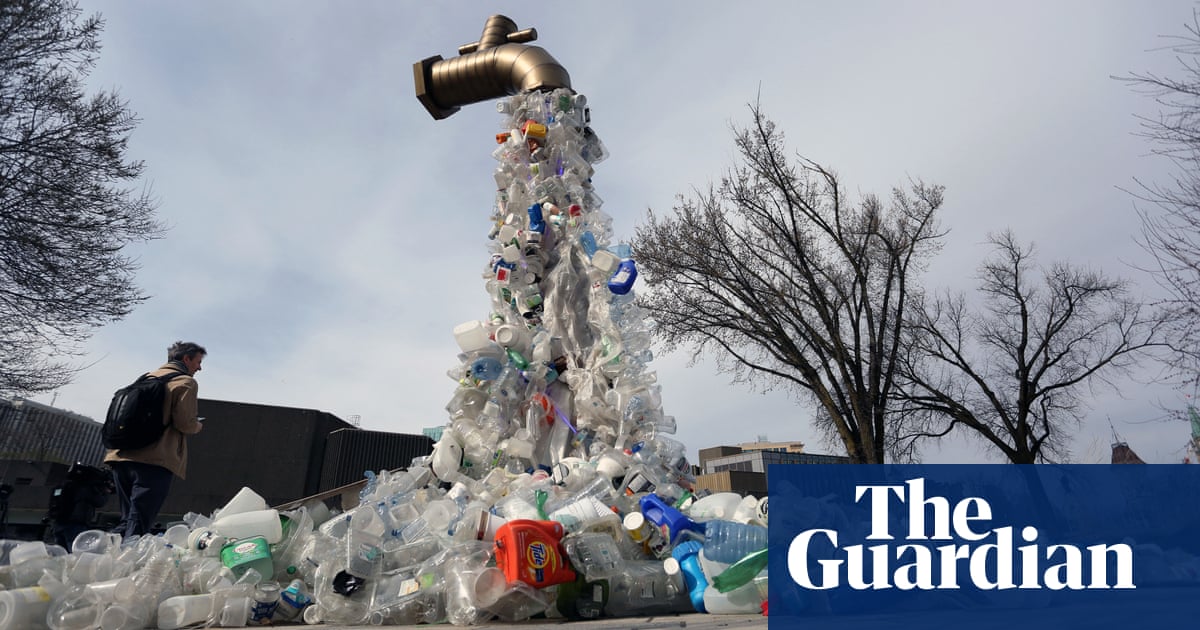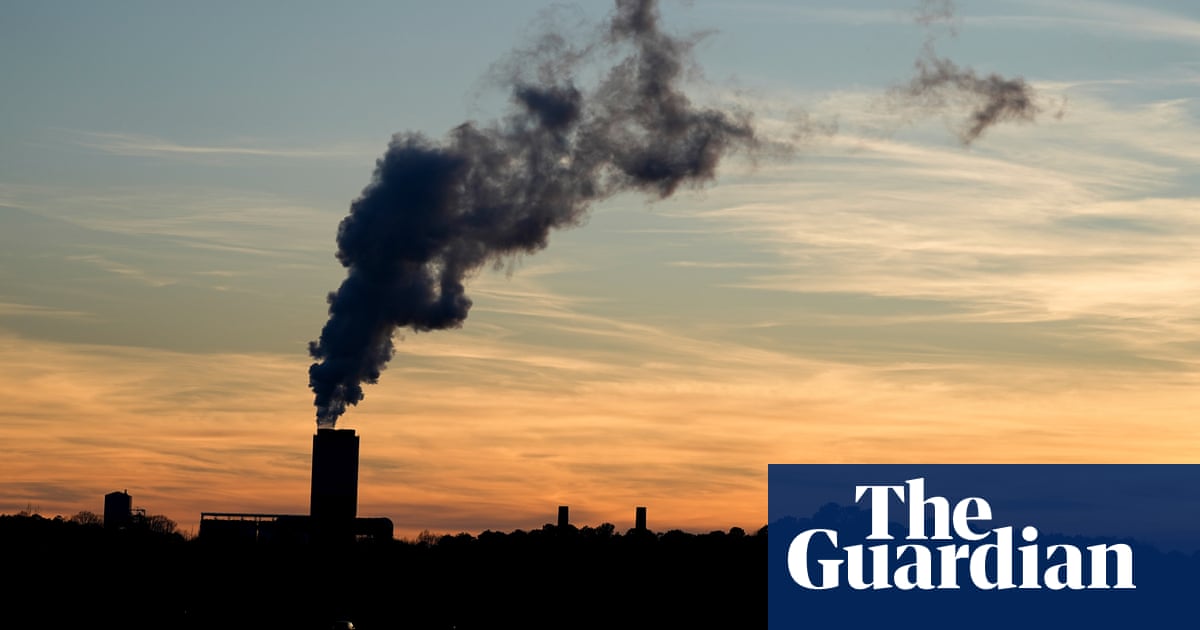Some are small and jumpy; others are large and intimidating – if you’re a humble housefly. Exotic spiders are flourishing in Britain as international trade offers ample opportunities for spider travel and global heating provides an increasingly hospitable climate.
A jumping spider new to science has been identified living on the University of Exeter’s Penryn campus in Cornwall. The nearest known relative of the 3-4mm-long Anasaitis milesae is found in the Caribbean, making it highly likely that this tiny species – alongside 17 other non-native jumping spider species – found its way to Britain from distant climes.
Much larger and more noticeable new arrivals include Zoropsis spinimana, popularly known as the false wolf spider, a Mediterranean species that is thriving in houses across London, and the striking green-fanged tube web spider (Segestria florentina), which first got a foothold in Bristol and is now found across southern Britain.
About 50 non-native spiders have been recorded in Britain among 3,500 non-native established species, most of which have been inadvertently introduced by the global movement of goods and people. Only about 10-15% of non-native species are considered to be “invasive” – such as grey squirrels, Japanese knotweed and the Asian or yellow-legged hornet – causing a negative environmental or human impact.
Helen Smith, a conservation officer for the British Arachnological Society, said: “Britain’s spider fauna, along with the rest of our wildlife, is changing more rapidly than ever before. As new, exotic species spread, particularly beyond urban areas, the chances of them impacting on less common native species increase.
“As well as competing for prey and for living spaces, these spiders may bring with them new parasites and diseases, an issue well known from invasive grey squirrels and crayfish but very poorly studied in spiders. Around 15% of our native spider species are already threatened with extinction as a result of habitat loss and climate change – in the future, non-native species could well add to the risks they face.”
The new species of jumping spider was discovered by Tylan Berry, Devon and Cornwall area organiser for the British Arachnological Society, during a “bioblitz”, or biological census, on the Penryn campus. The unusual species was confirmed as new to science and named by Dmitri V Logunov, a jumping spider expert, of the Zoological Institute of the Russian Academy of Sciences.
“It is amazing that something can be hiding in plain sight,” said Berry. “It’s established on the campus and easy to find in good numbers, living and breeding, and it’s also been found in another ornamental garden 30 miles away.
“It’s a pretty little thing, and looks like a bit of old 1970s carpet – brown and white and patterned.”
Cornwall and Devon are hotspots for new spiders, thanks to their ports and mild climate, with the absence of frosts in some areas allowing exotic species to survive the British winter.
Berry has identified a large population of another non-native spider, the grey house spider (Badumna longinqua) in Plymouth.
This large spider hails from New South Wales, Australia, and is considered one of the most invasive spider species in some countries where it has been accidentally introduced, including Japan, the US and Brazil.
The fast-spreading species is not yet well-established on continental Europe but has rapidly moved through Britain since first being spotted in 2021. Since being found in Washington, north-east England, it’s been recorded in south Wales, Nottinghamshire and Camborne and Newquay in Cornwall. Many early sightings were close to ports or garden centres, suggesting they arrived on imported plants.
“It’s incredibly well-established in Plymouth,” said Berry. “I was really taken aback. It’s spread over a 6km/sq area and in some places is the dominant species.”
The spider lives in urban areas, residing in large aggregations and weaving webs that look similar to some native spiders on wooden fences and metal sign-posts, including bus stops.
In places, Berry found only this species and few native spiders, and fears it may have supplanted native lace web spiders and missing sector orb weaver spiders.
“It’s definitely got potential for causing a shift in the ecosystem,” said Berry. “But rather than predating on native spiders, I think they might just be competition for space.”
Exotic spiders excite tabloid newspaper editors and alarm arachnophobes, and the false wolf spider and the green-fanged tube web spider have the potential to cause a stir because of their size and their ability, in theory, to pierce human skin with their (briefly painful but harmless) nips.
In reality, despite media attention, the false wolf spider has caused little alarm and the green-fanged tube web spider keeps to itself, living in holes in walls and only darting out at night to seize its prey.
Both species are on the move, with the false wolf spider having spread as far west as Somerset and as far north as Newcastle since it was first photographed in Britain in 2008 – given a lift in some cases not only on global shipping containers but inside campervans of holidaymakers returning from continental Europe.
Spider experts have a message: don’t panic.
“Look out for these things, record them if you can, but be interested in them as well,” said Berry. “The more you learn, the more you understand about a species, and that’s a good way of getting rid of any fears or misinformation.
“These arrivals are just going to happen. There’s very little we can do to stop them. Tied in to the warming of the climate, different species can get a hold in particularly areas and change ecosystems quite quickly.”



